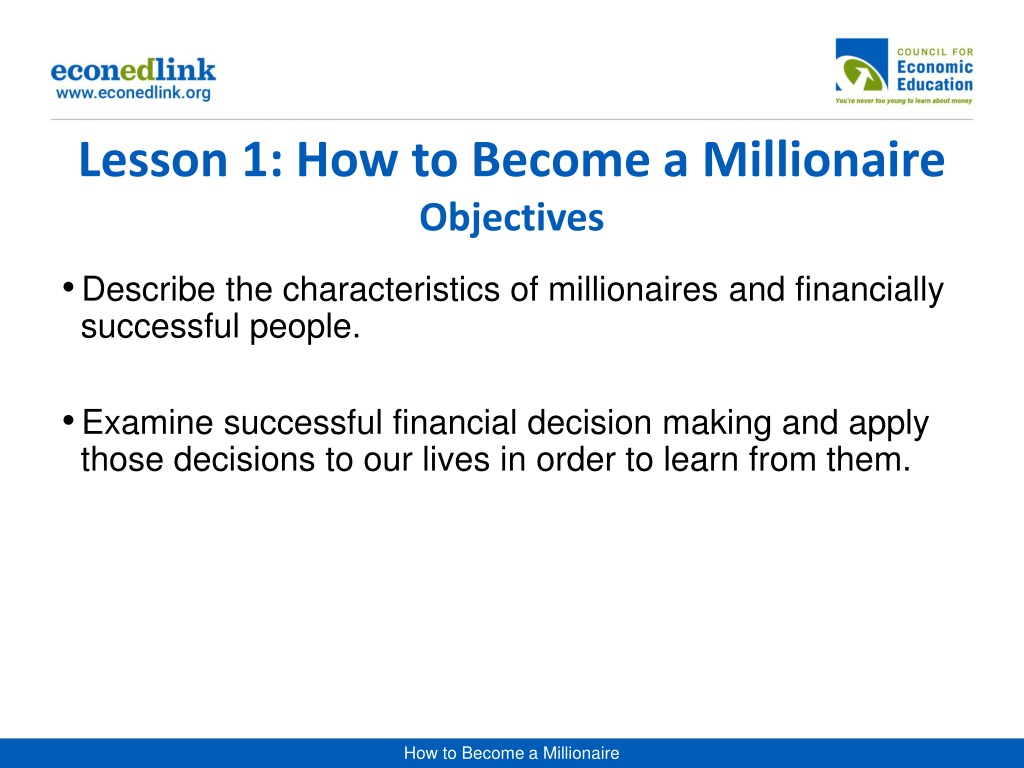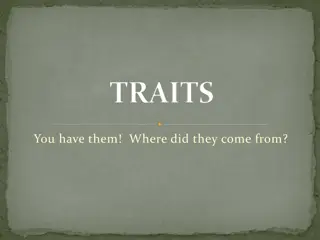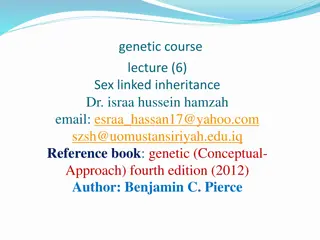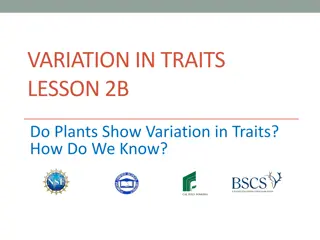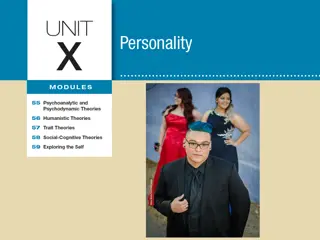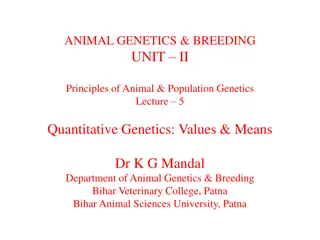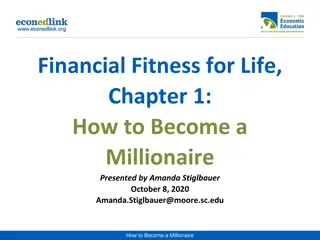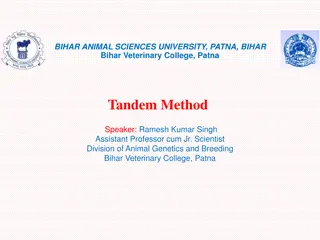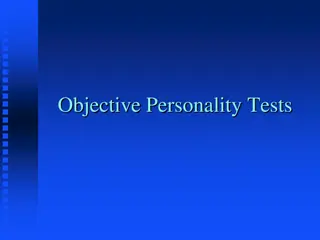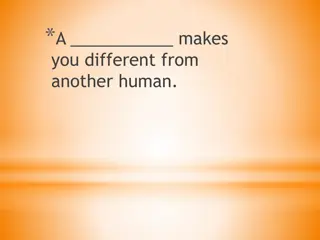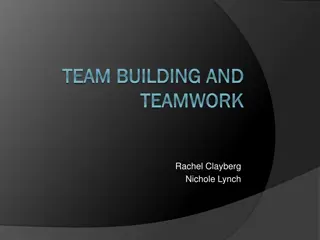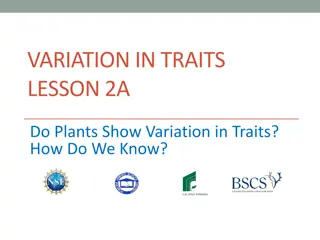Understanding the Traits of Millionaires for Financial Success
Explore the characteristics of millionaires & financially successful individuals, learn from successful financial decisions, and test your knowledge with a millionaire game. Discover insights on education, work hours, inheritance, and schooling of millionaires.
Download Presentation

Please find below an Image/Link to download the presentation.
The content on the website is provided AS IS for your information and personal use only. It may not be sold, licensed, or shared on other websites without obtaining consent from the author. Download presentation by click this link. If you encounter any issues during the download, it is possible that the publisher has removed the file from their server.
E N D
Presentation Transcript
Lesson 1: How to Become a Millionaire Objectives Describe the characteristics of millionaires and financially successful people. Examine successful financial decision making and apply those decisions to our lives in order to learn from them. How to Become a Millionaire
Rules of the Millionaire Game Each correct answer is worth 5 points, while each incorrect answer costs you 5 points. Using your Double Down card will double correct/incorrect point values. You may only use your Double Down card 5 times. Any questions? How to Become a Millionaire
Statement #1 True or False Most millionaires are college graduates. How to Become a Millionaire
Statement #1 - Answer True 4 out of 5 millionaires are college graduates. 18% have Master s Degrees 8% have Law Degrees 6% have Medical Degrees 6% have Ph.D. s How to Become a Millionaire
Statement #2 True or False Most millionaires work fewer than 40 hours a week. How to Become a Millionaire
Statement #2 - Answer False About 2/3 of millionaires work 45-55 hours a week. How to Become a Millionaire
Statement #3 True or False More than half of all millionaires inherited their money. How to Become a Millionaire
Statement #3 - Answer False Only 19% of millionaires received any income or wealth of any kind from a trust fund or an estate. Fewer than 10% of millionaires inherited 10% or more of their wealth. How to Become a Millionaire
Statement #4 True or False Most millionaires attended private schools. How to Become a Millionaire
Statement #4 - Answer False Most millionaires attended public schools. Fewer than 20% of female millionaires attended private schools. How to Become a Millionaire
Statement #5 True or False Most millionaires drive expensive new cars. How to Become a Millionaire
Statement #5 - Answer False Most millionaires spend under $30,000 for a car. Only 23% of millionaires drive a current-year (new model) car. How to Become a Millionaire
Statement #6 True or False Most millionaires work in glamorous jobs, such as sports, entertainment, or high tech. How to Become a Millionaire
Statement #6 - Answer False Most millionaires work in ordinary industries and jobs. They become wealthy because they make good use of market opportunities. How to Become a Millionaire
Statement #7 True or False Most millionaires work for very large public companies. How to Become a Millionaire
Statement #7 - Answer False About 75% millionaires are self employed and consider themselves to be entrepreneurs. Most of the others are professionals, such as doctors, accountants, and lawyers. How to Become a Millionaire
Statement #8 True or False The most common way to become a millionaire is by winning the lottery. How to Become a Millionaire
Statement #8 - Answer False Few people get rich by luck. If you play the Power Ball lottery, the chances of winning are worse than one in 292 million. In contrast, if you live in the US, you have a one in 13,500 chance of being struck by lightning. Source: https://www.cbsnews.com/news/odds-of-winning-1-billion-mega-millions-and-powerball-1-in-88-quadrillion/ How to Become a Millionaire
Statement #9 True or False A college graduate earns almost double the annual income of a high school graduate. How to Become a Millionaire
Statement #9 - Answer True In 2018 the typical college graduate with a bachelor s degree earned a median weekly income of $1,232, while the median weekly income of the typical high school graduate was $736. People with advanced degrees (professional or master s degrees and above) earned a median weekly income of $1,487. Source: 2018 Bureau of Labor Statistics figures. How to Become a Millionaire
Statement #10 True or False If a high school graduate invests the difference between his or her earnings and the earnings of a high school dropout, from age 18 until age 67, at 8% interest, the high school graduate would have $5.5 million more than the high school dropout at age 67. How to Become a Millionaire
Statement #10 - Answer True This is a dramatic illustration of the value of a high school diploma. How to Become a Millionaire
Statement #11 True or False Investors who buy and hold stocks for the longterm have better long-term stock returns than those who buy and sell stocks more frequently. How to Become a Millionaire
Statement #11 - Answer True Studies show that individuals who buy and hold stock versus turning stock over more quickly have greater net gains. The costs related to hyper-trading (buying and selling stock with great frequency) in terms of time and money can reduce the gains of even the luckiest investor. How to Become a Millionaire
Statement #12 True or False Millionaires tend to avoid investing in the stock market. How to Become a Millionaire
Statement #12 - Answer False In the long-run (starting in 1926 and including the Great Depression), the Standard & Poor s 500 Stock Index has increased at about a 10% compound annual rate of return, exceeding the return on any other investment. Of course, there is a risk. The stock market has down years, and there is no guarantee of a 10% return in the future, especially in the short run. In contrast, the long-term return on U.S. government securities during the same time period ranged from 5% to 6%. How to Become a Millionaire
Statement #12 Answer (continued) False Another way of looking at this is that $1.00 invested in the S&P 500 in 1925 was worth $5,317 by the end of 2014. One dollar invested in government bonds during the same time period was worth about $135 by the end of 2014. For most investors it probably paid to take the additional risk of buying stocks. How to Become a Millionaire
Statement #13 True or False At age 18, you decide not to drink soda from the vending machine and save $1.50 a day. You invest this $1.50 a day at 8% interest until you are 67. At age 67, your savings from not buying soda from the vending machine are almost $300,000. How to Become a Millionaire
Statement #13 - Answer True Because of the power of compound interest, small savings can make a difference. It pays to live below your means. Find a balance between spending now and saving for the future. How to Become a Millionaire
Statement #14 True or False If you save $2,000 a year from age 22 to age 65 at 8% interest, your savings will be more than $700,000 at age 65. How to Become a Millionaire
Statement #14 - Answer True Because of the power of compound interest, the earlier you begin saving the better. Regular saving will make you a millionaire, even if your salary is modest. How to Become a Millionaire
Statement #15 True or False Millionaires tend to be single rather than married. How to Become a Millionaire
Statement #15 - Answer False Most millionaires are married and stay married. How to Become a Millionaire
How Did You Do? A total of 100 points is a perfect score you might be a Millionaire of Tomorrow! To earn this score, you must have answered all the questions correctly and used the Double Down correctly on five of those questions. How to Become a Millionaire
Rules for Improving Your Financial Life Get a good education. Work long, hard, and smart. Learn how to manage your money to avoid unwanted debt. Save early and often. Invest in common stocks for the long term. Gather information and compare the alternatives before making decisions. How to Become a Millionaire
